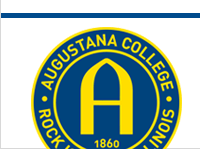Course
BIOL-375
Document Type
Poster
Publication Date
Winter 1-28-2020
Disciplines
Biology | Genetics | Microbiology
Description, Abstract, or Artist's Statement
Nosocomial pathogens are multi-drug resistant to antibiotics that fight bacterial infections posing danger to the public health, the most dangerous of them being the ESKAPE pathogens (Enterococcus faecium, Staphylococcus aureus, Klebsiella pneumoniae, Acinetobacter baumannii, Pseudomonas aeruginosa, and Enterobacter spp.). This project is a collabortaion with the TIny Earth Project Initiative (TEPI), which is a global network of educators and students focused on studentsourcing antibiotic discovery from the soil. TEPI allows student-led research on local soil samples from Bettendorf, IA to discover potential novel antibiotic producing bacteria that could potentially treat ESKAPE pathogens and reduce public health risk. Two soil isolates were identified as antibiotic producing bacteria, CP-8-LB-B. subtilis and CP-26-TSA-B. subtilis, that worked against Bacillus subtilis. The soil isolates were sent for 16S rRNA sequencing at the University of Iowa, Institute of Human Genetics and ran through the NCBI BLAST program to be identified as belonging to the Bacillus genus.
Augustana Digital Commons Citation
Potter, Cassidy and Scott, Dr. Lori. "Isolated Antibiotic Producing Bacteria in Local Soil Samples Determined to be Bacillus" (2020). Identifying and Characterizing Novel Antibiotic Producing Microbes From the Soil.
https://digitalcommons.augustana.edu/biolmicro/7
Creative Commons License

This work is licensed under a Creative Commons Attribution-NonCommercial-Share Alike 4.0 International License.
